I’m your pixelpleasure, 2017
︎︎︎
performance Ophelia Benedetti, Tess Altman, Livy Porter, Bella Porter, Arleen Bachner, Cassius Rudensky Huge, Ian Rice, & Baby Poo Poo
five Vizio monitors, lavender vanilla scent, Handshake chair, soft floor mats, Goldendoodle, AstroTurf, inflatable donut, Gaiam Backless Classic Balance Ball Chair, soda fountain, animal plush pillows, custom Trophy Depot trophies, iCarly blanket, rubber snake, elastic garden hose, grandmother’s nightgown, PVC pipes, dog leashes, vinyl rope, Owens Corning insulation, silicon cake mold
Installed between hanging and grounded inflatable seats and brightly tanging paraphernalia, five sculpturally isolated television screens become interconnected around a fountain’s pink liquid dripping in I’m your pixelpleasure. Declarative by its title, the work confuses pleasure sources by its being composed of various subjects: I, the artist, or I, five Vizio screens, or I, seven Beagle puppies frowning above a screen shrine, or I-you, you watching Zander Porter move between monitors by way of blue-pink vinyl licorice webs, performing as self or as 14 reality TV masc.-fem.-moms-dads-winners-losers.
I’m your pixelpleasure strives for deep reach into the thin surface of Google search, over-realized desktop backgrounds, and pop cultural-sonic YouTube (re-)remixes, internet events with similar mass-production and artificiality to plastic wigs, children’s blankets, and AstroTurf. The work’s self-motivated narrative desires to know what it means that the winner of RuPaul’s Big Brother Survivor Race hosted in thin internet receives a flesh baby as her grand prize, having been birth-concocted initially as a plastic-bagged collection of domestic toys by her own queer parents and sponsor-donated by ASMR Mom, rooting for her success through the eyes of their MacBook Pro and VIXIA camcorder.
The work was debuted as a five-channel video and performance-installation, my character-host body welcoming visitors into the Ezra and Cecile Zilkha Gallery exhibition space, modeling appropriate behavior with Tex and a large Goldendoodle. The work was awarded the Elizabeth Verveer Tishler Prize and was nominated for Wesleyan University’s highest academic award, University Honors. It has been further installed for online and offline exhibitions at the Byre Theatre, TIFA Working Studios, Estación Terrena, Centro Cultural de España en Costa Rica, Puntomov Fest, Digital America, and others.
I’m your pixelpleasure “is a provocative, politically astute, and playful exploration of identity, gender, queerness, family, and entertainment in an era of media supersaturation. I can easily attest to the work’s originality and intellectual acuity in terms of the way it explores the uneasiness that surrounds media ‘junk food’: reality television, online memes, cartoons/cosplay, clip art, and so on. Rather than simply taking a polemical stance against the debasement of culture – which is by far the most common critical response – Zander’s work approaches cultural detritus with a mixture of curiosity, reverence, and skepticism. This approach both avoids the misanthropy that often taints criticism of digital culture, but also does not simply celebrate this culture. It is more a reflection or meditation on salient themes like disposability, kinship, normativity, visual noise, and the possibilities of self invention and reinvention. I was thoroughly impressed by the way the work does not easily resolve into either a critique of digital culture nor an apologia for it. Furthermore, the work raises the issue of whether things that may seem to be of little cultural value – like reality television, for example – may in fact help us to think in more complex ways about the politics of identity formation and transformation and the possibilities for transgressing or even escaping the imperative to identify/differentiate with/against others. Again, this sets Zander’s work apart from so much other media criticism, which too often has failed to identify and think in a subtle and complicated way about these dynamics. There is no doubt that Zander’s age is an asset here, insofar as the artist is simply better positioned to understand contemporary digital culture from a ‘native’s’ perspective, but Zander also brings to the table a remarkable political sensitivity and theoretical richness. That Zander is able to do this while maintaining a kind of playfulness throughout the work is all the more remarkable. Zander’s talent and skill are on full display in the work and the work as a whole clearly illustrates Zander’s immense promise as both an artist and a thinker.”
— Greg Goldberg, PhD, author of Antisocial Media
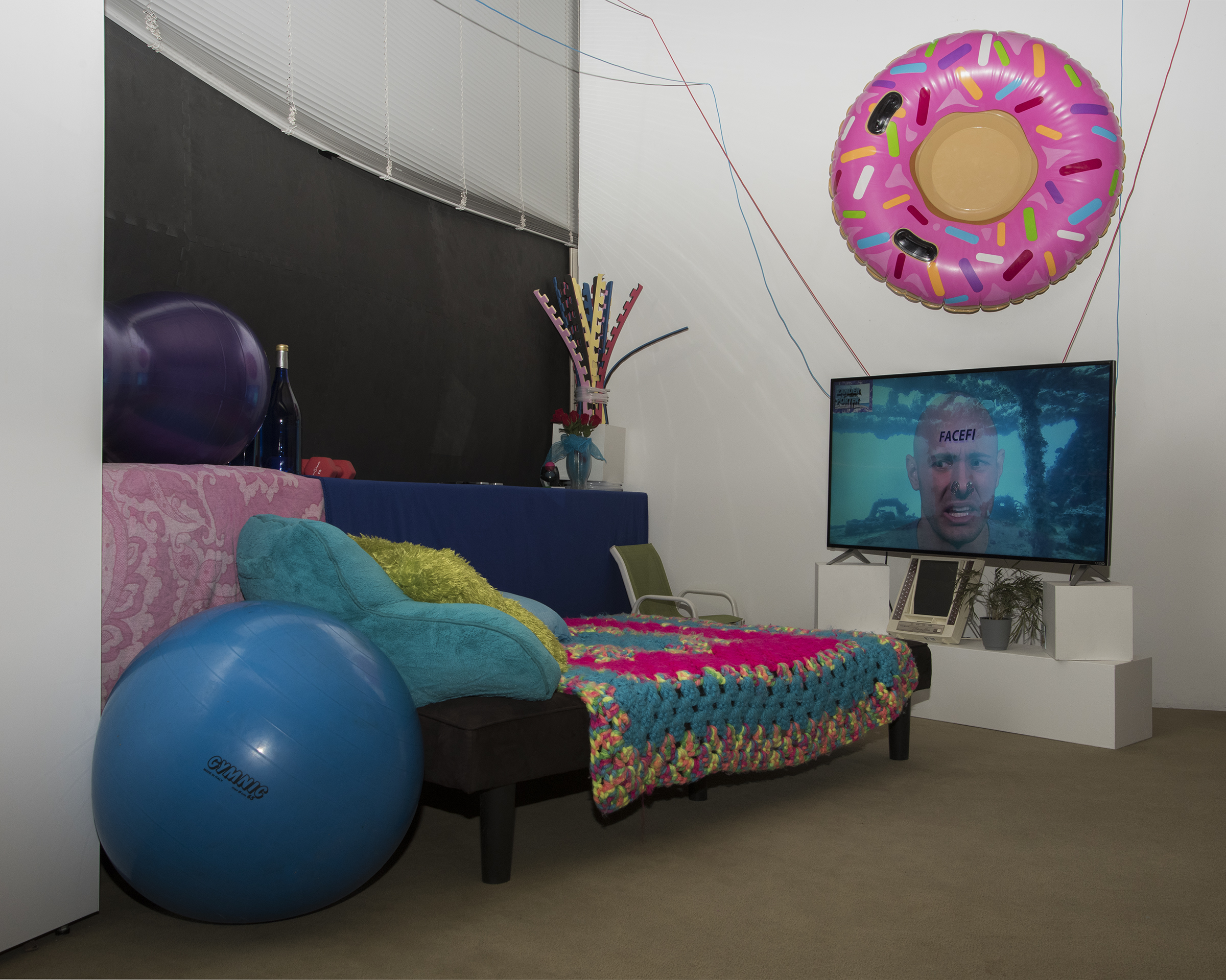


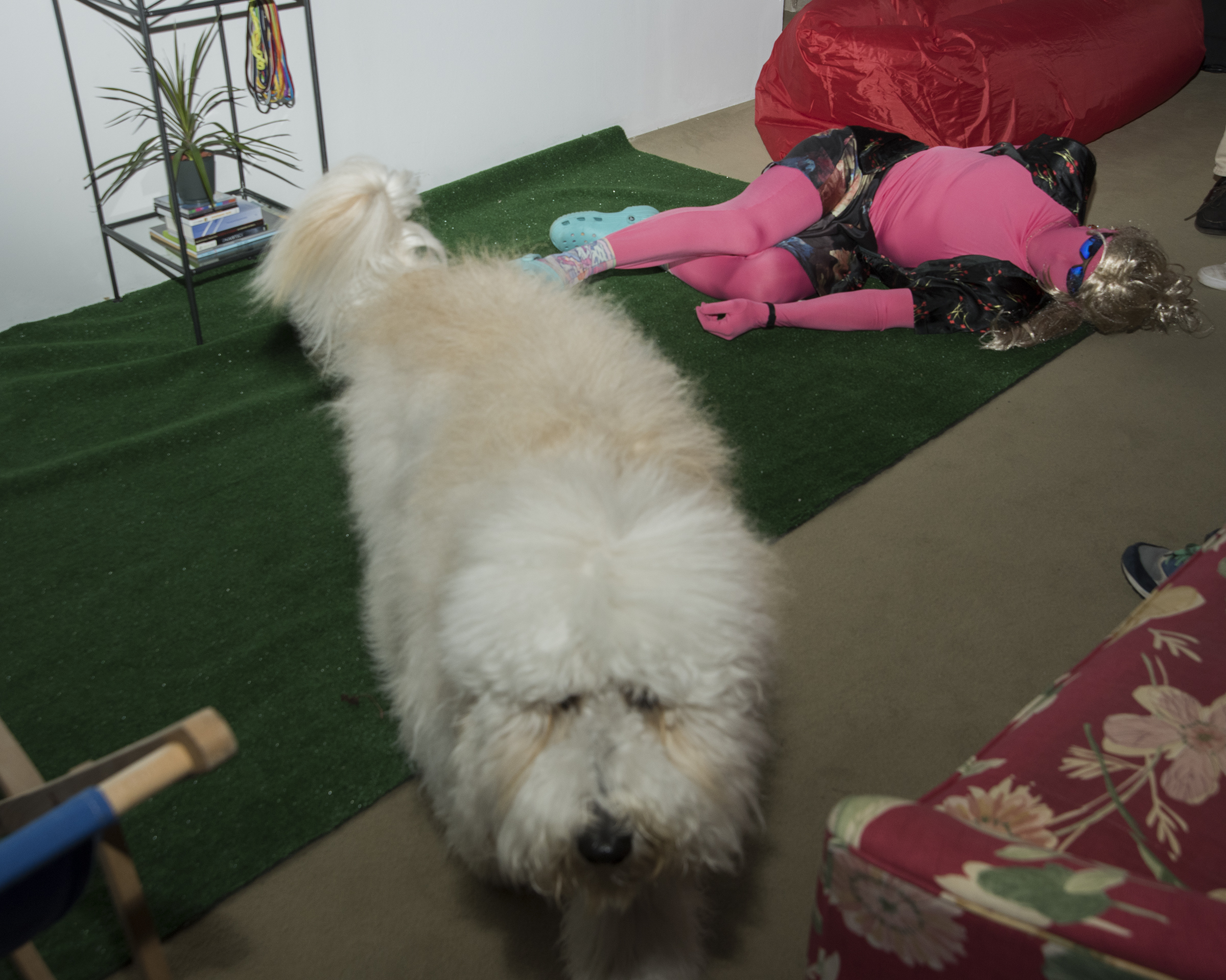
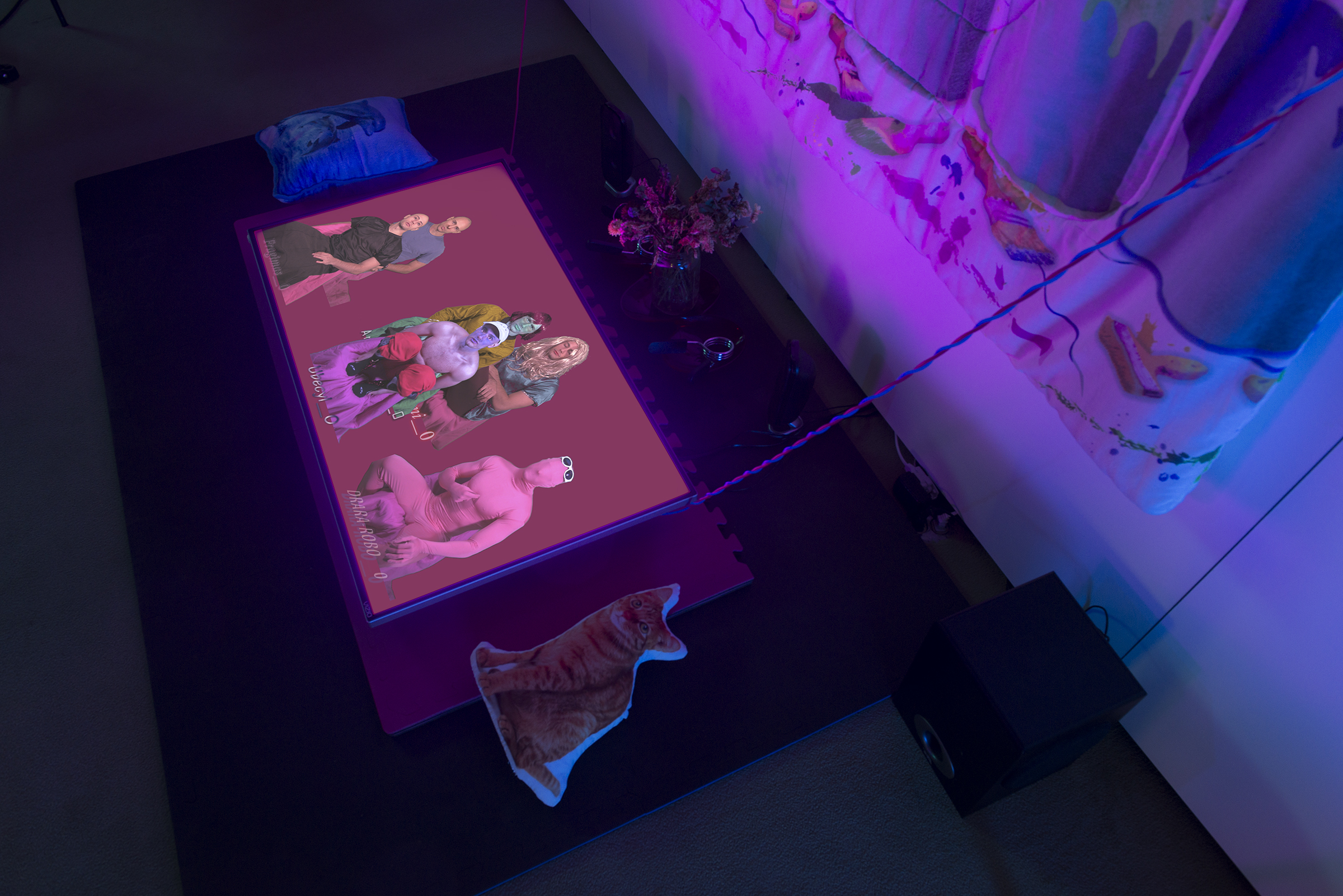



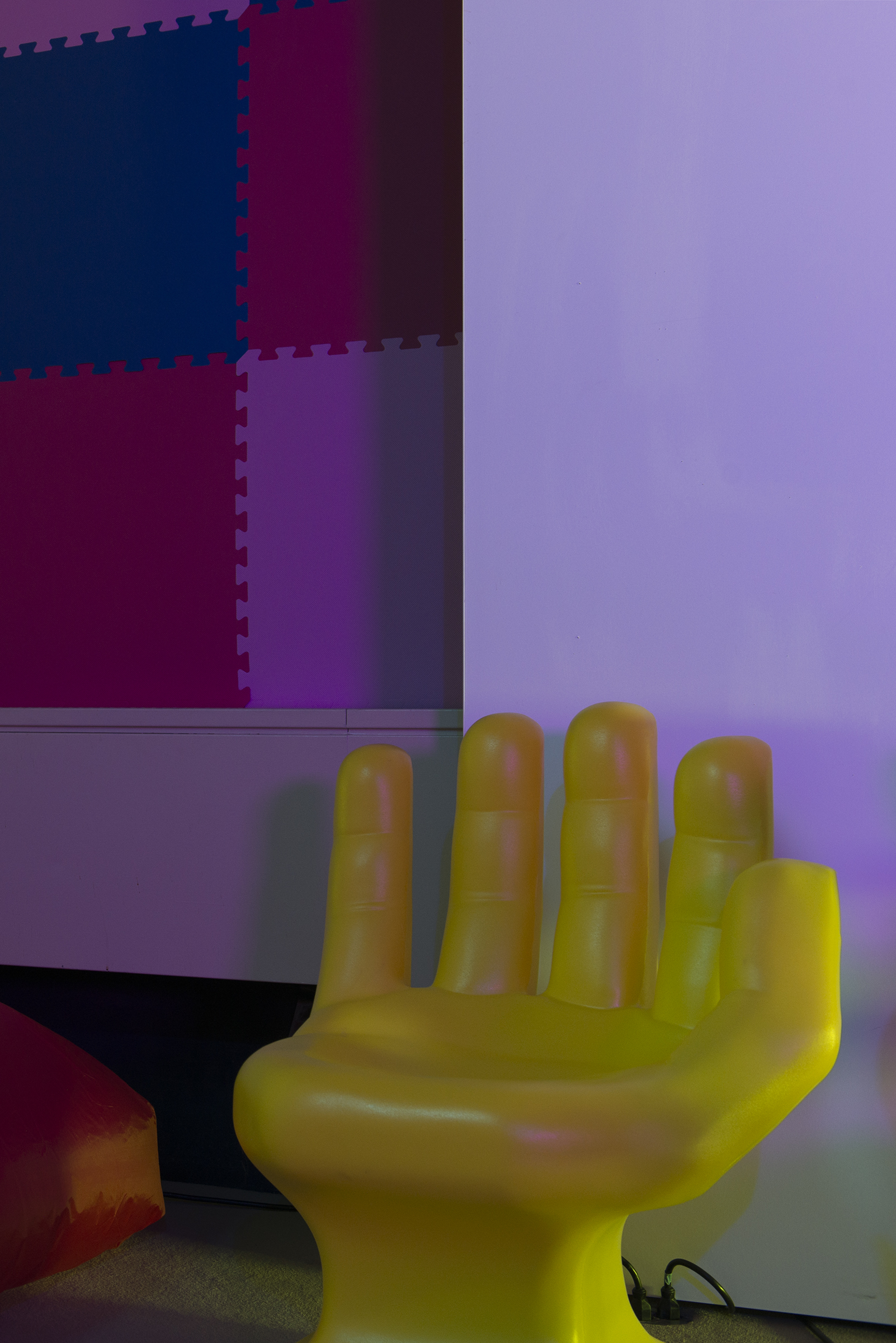
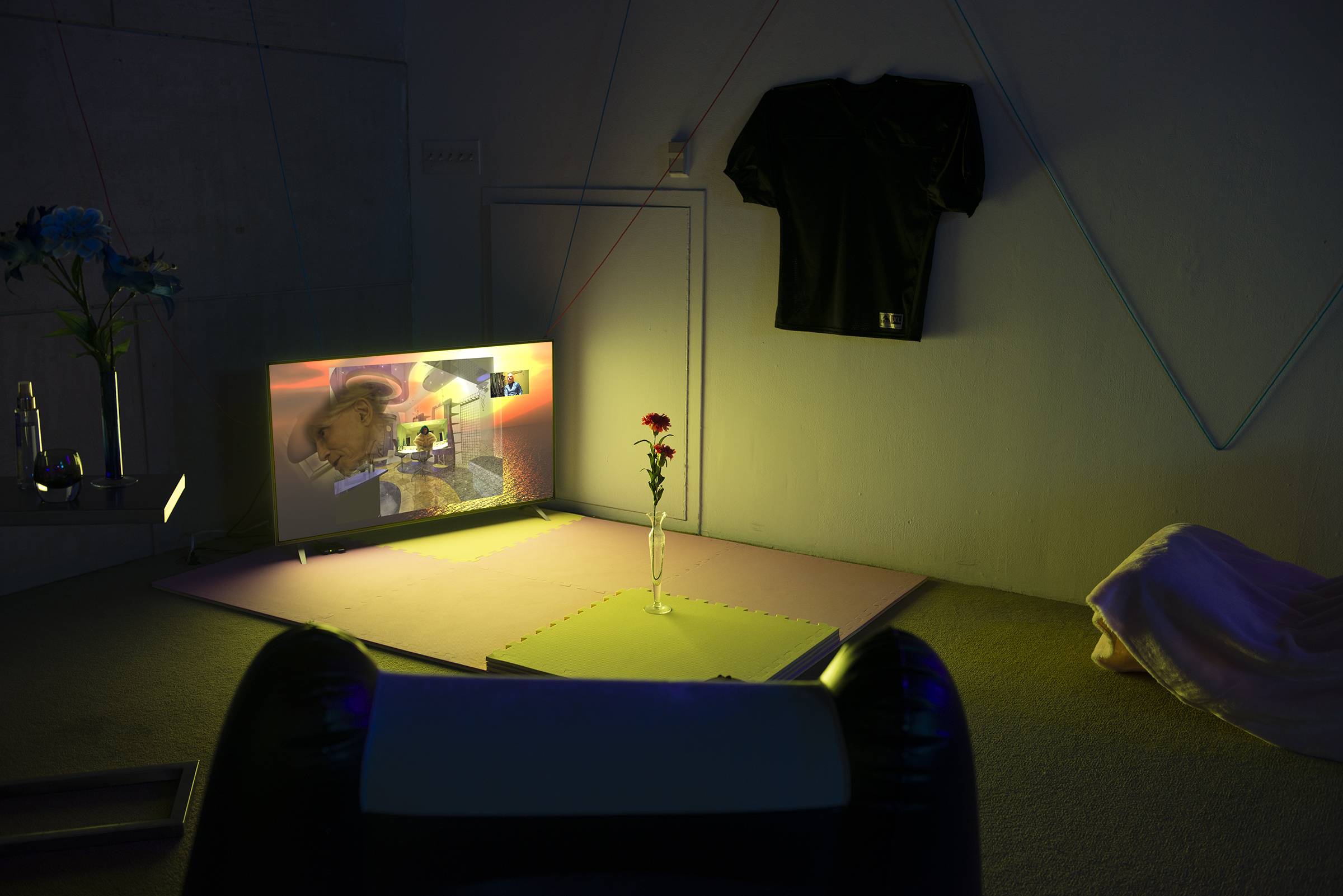



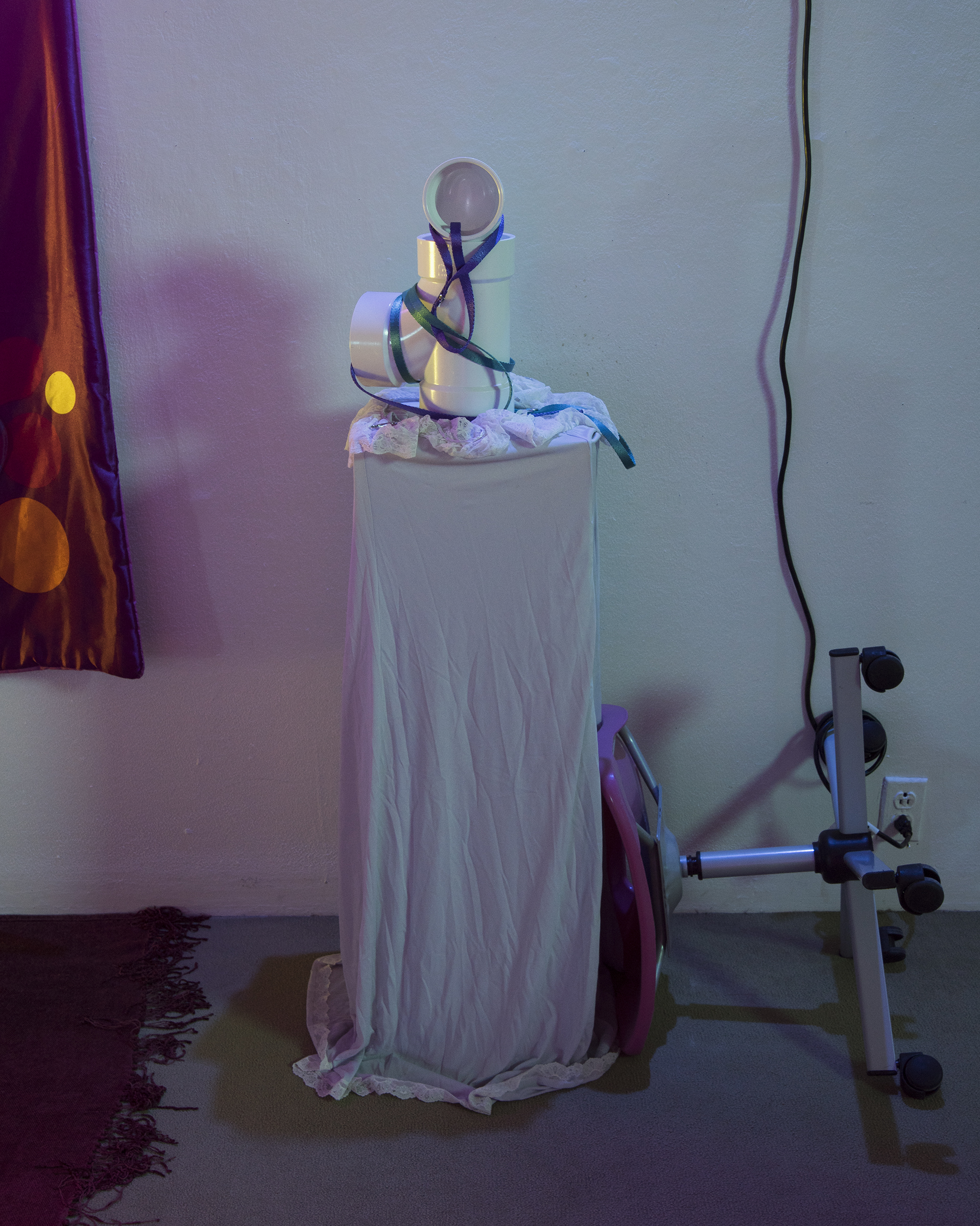


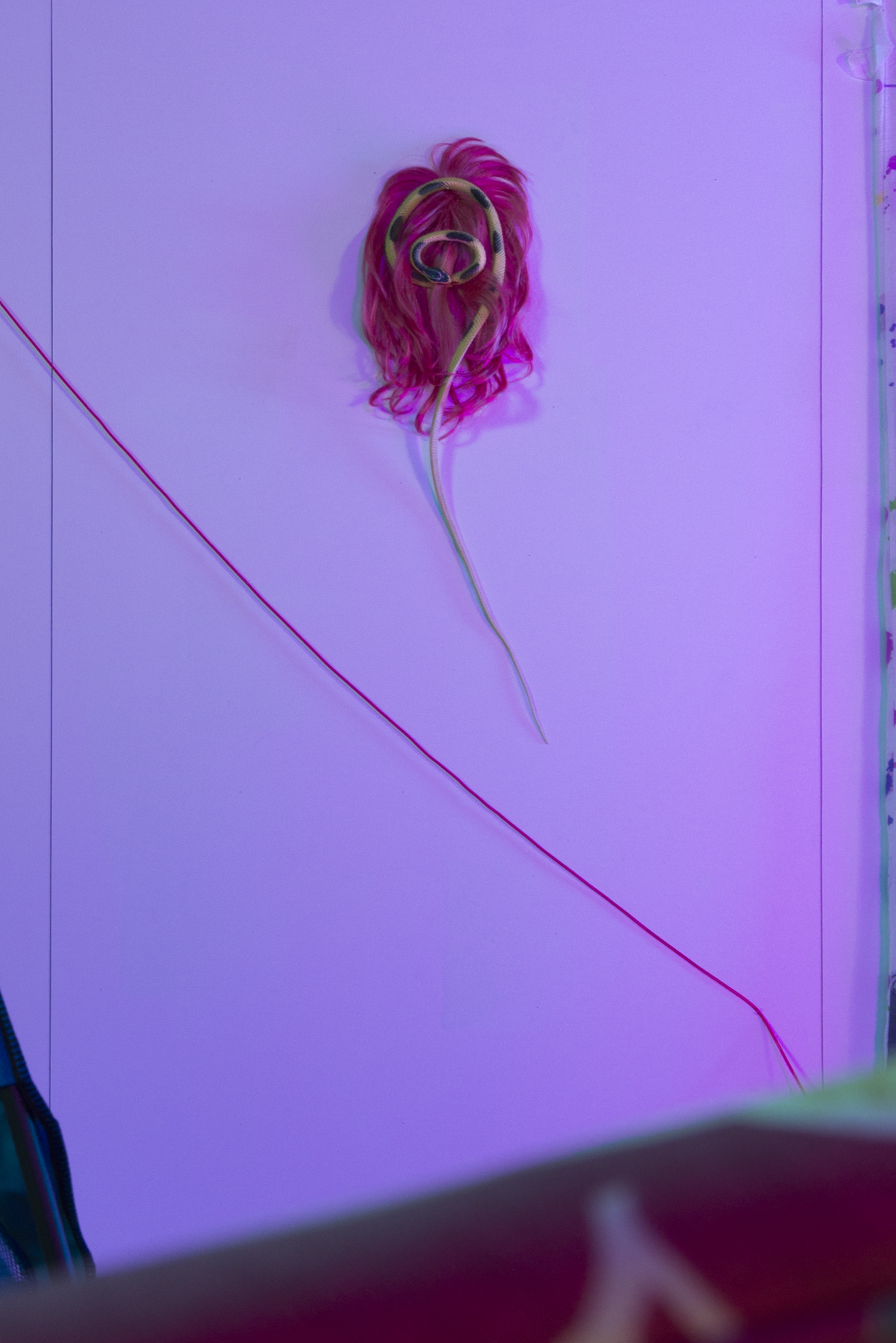



»Desktop
